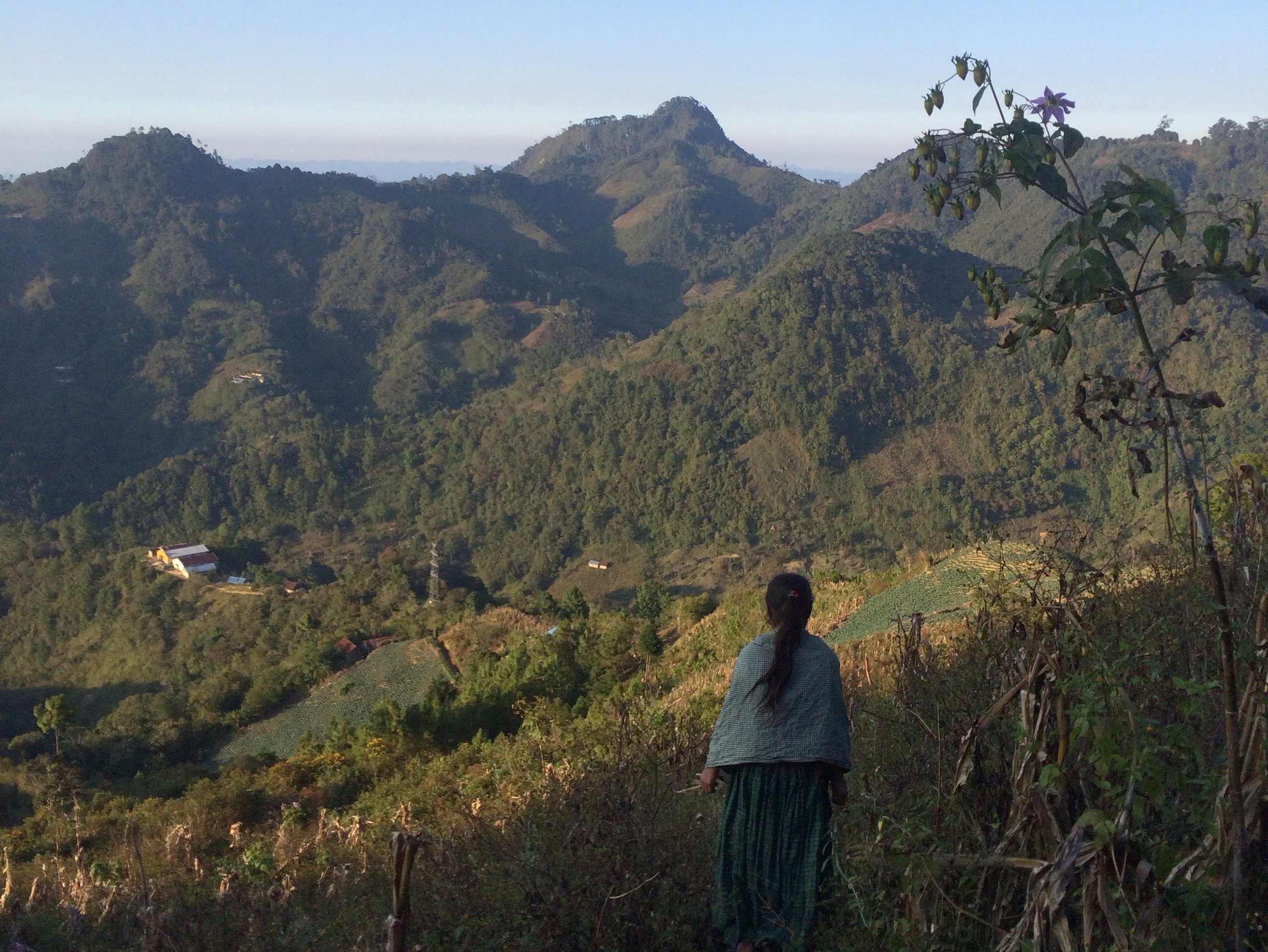2 Kings 4:5
Elisha and the Oil "Look at what you have, take it and bring it to Jesus, then he will multiply it."
"Stop focusing on what you don't have. Instead look at what you do have, and do something with that."
We spent a week at Community Cloud Forest Conservation helping build projects, and learning about the cloud forest and the Mayan people who live in it. During the week, kids in grade 6 were there taking part in a school program. We were paired up in groups of two with one of these local kids for a two-night Mayan homestay. We piled into buses that took us up into a mountain valley. From there, we followed our new family to their home. The two of us were paired with Gladis, a beautiful 12-year old girl from the rural village of Cebop. We were in for quite the surprise when Gladis took us on a 30 minute uphill walk to her home.
We were welcomed by her father and shown the house. It was made up of two separate wood buildings connected by a tin roof. The floor was completely dirt, and all the furniture was made solely out of wood. We were given some fruit and tea, and sat down on the wooden benches on one end of the room. Slowly, children startled trickling in, and before we knew it eight kids aged 8-months to 13-years old were sitting across the room, staring at us. Some of the kids spoke a little Spanish, but their native language is Q’eqchi', a language that is incredibly difficult to speak, and of which we knew nothing. We tried to ask them questions like "what is your name?" or "how are you?" in Spanish, but all we got was silence or a whispered reply. Then Denis, our 8-year old host brother, appeared with a ball in his hand. From there, a game of catch started with us on one side of the room, and the kids on the other.
Then we tried out a new activity: take a notebook, and draw a picture of an object, and write the English word beside it: house, and the Spanish word: casa. The kids write out and teach you the Q’eqchi’ word: ochoch. The kids were a little apprehensive at first, but soon they got into it, all reaching for the pen so they could write in the word or draw their own picture. Some words were quite simple. Pineapple, piña (Spanish), and chop (Q’eqchi’). And others we still have no idea how to pronounce; flower, flor (Spanish), and uutzùuj (Q’eqchi’). We all had so much fun writing — even their parents came into the room to see what we were doing.
The next day was even better, with us playing soccer outside with the kids, and them drawing endless pictures for us and reciting all the English words they learned. At dinner that night they kept teaching their mom all the words they knew, pointing at a dog and saying "dog… Perro… Tźí".
We were there with only a ball, pens and paper, and our imagination to use. Somehow we had the greatest time and formed a beautiful relationship with this family. It didn't matter to the kids that we didn't have any cool toys or fun electronics for them to play with, or that we couldn't even speak their language. We took what we had, and used it as well as we could. By the end of our time there, we went from awkwardly staring at each other from across the room, to all the kids sitting on one wooden bench with us so we could share our two notebooks.
Leaving this beautiful family after only two days was one of the hardest goodbyes of the semester. We had experienced what felt like a whole other world. At the same time, we had come to understand that this was all they knew and would probably ever know.
We reflected on the fact that next year, when we're sitting in a university lecture, Gladis will still be making the uphill trek to her home where her mom will still be making corn tortillas. We are left wondering what to do with that understanding… how can this two-night homestay be more than just another thing we did while on Outtatown? How does this apply to life in our own reality? As we struggle through these questions, we are trusting that God placed us in Cebop for a reason, that His plan is always greater than ours, and that he will use this experience we had and multiply it into great things.
– Stephanie Wadge and Shelby Sytnyk, Guatemala Students 2016-17

